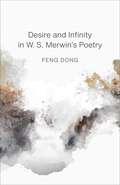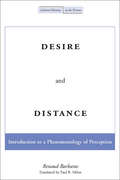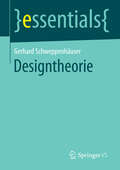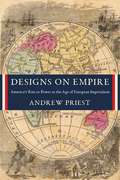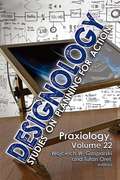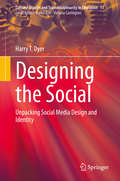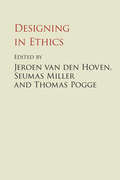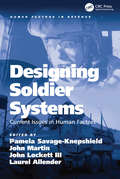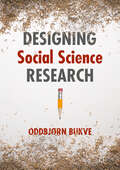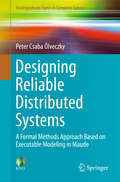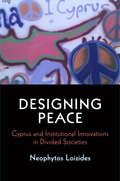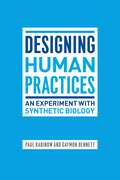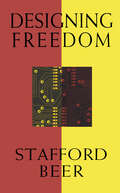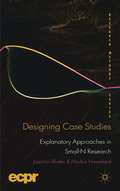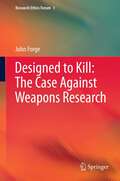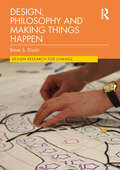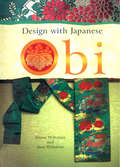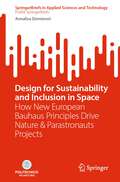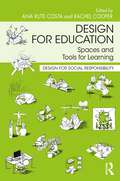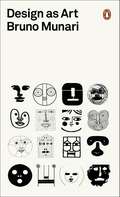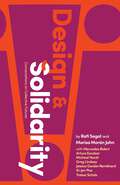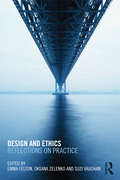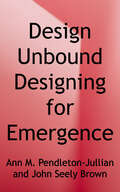- Table View
- List View
Desire and Infinity in W. S. Merwin's Poetry
by Dong FengIn the first monograph on W. S. Merwin to appear since his death in 2019, Feng Dong focuses on the dialectical movement of desire and infinity that ensouls the poet’s entire oeuvre. His analysis foregrounds what Merwin calls “the other side of despair,” the opposite of humans’ articulated personal and social agonies. Feng finds these presences in Merwin’s evocations of what lingers on the edge of constantly updated socio-symbolic frameworks: surreal encounters, spiritual ecstasies, and abyssal freedoms. By examining Merwin’s lifelong engagement with psychic fantasies, anonymous holiness, entities both natural and supernatural, and ghostly ancestors, Feng uncovers a precarious relation with the unarticulated, unrealized side of existence. Drawing on theories from Lacan, Žižek, Levinas, and Heidegger, Desire and Infinity in W. S. Merwin’s Poetry reads a metaphysical possibility into the poet’s work at the intersection between contemporary poetics, philosophy, and psychoanalysis.
Desire and Human Flourishing: Perspectives from Positive Psychology, Moral Education and Virtue Ethics (Positive Education)
by Magdalena BoschThis book discusses the concept of desire as a positive factor in human growth and flourishing. All human decision-making is preceded by some kind of desire, and we act upon desires by either rejecting or following them. It argues that our views on and expressions of desire in various facets of life and through time have differed according to how human beings are taught to desire. Therefore, the concept has tremendous potential to affect human beings positively and to enable personal growth. Though excellent research has been done on the concepts of flourishing, character education and positive psychology, no other work has linked the concept of desire to all of these topics. Featuring key references, explanations of central concepts, and significant practical applications of desire to various fields of human thought and action, the book will be of interest to students and researchers in the fields of positive psychology, positive education, moral philosophy, and virtue ethics.
Desire and Distance: Introduction to a Phenomenology of Perception
by Paul Milan Renaud BarbarasDesire and Distance constitutes an important new departure in contemporary phenomenological thought, a rethinking and critique of basic philosophical positions concerning the concept of perception presented by Husserl and Merleau-Ponty, though it departs in significant and original ways from their work. Barbaras's overall goal is to develop a philosophy of what "life" is--one that would do justice to the question of embodiment and its role in perception and the formation of the human subject. Barbaras posits that desire and distance inform the concept of "life." Levinas identified a similar structure in Descartes's notion of the infinite. For Barbaras, desire and distance are anchored not in meaning, but in a rethinking of the philosophy of biology and, in consequence, cosmology. Barbaras elaborates and extends the formal structure of desire and distance by drawing on motifs as yet unexplored in the French phenomenological tradition, especially the notions of "life" and the "life-world," which are prominent in the later Husserl but also appear in non-phenomenological thinkers such as Bergson. Barbaras then filters these notions (especially "life") through Merleau-Ponty.
Designtheorie (essentials)
by Gerhard SchweppenhäuserDas essential bietet eine ideengeschichtliche Erkundung moderner Konzepte von Design. Es schlägt Positions- und Kursbestimmungen für ein zukunftsfähiges Design vor und diskutiert Aspekte des engen und des erweiterten Designbegriffs. Die Ambivalenz von Design zwischen Entwurf für den bestehenden Bedarf und Entwurf eines noch nicht Seienden wird philosophisch fruchtbar gemacht.
Designs on Empire: America's Rise to Power in the Age of European Imperialism
by Andrew PriestIn the eyes of both contemporaries and historians, the United States became an empire in 1898. By taking possession of Cuba and the Philippines, the nation seemed to have reached a watershed moment in its rise to power—spurring arguments over whether it should be a colonial power at all. However, the questions that emerged in the wake of 1898 built on long-standing and far-reaching debates over America’s place in the world.Andrew Priest offers a new understanding of the roots of American empire that foregrounds the longer history of perceptions of European powers. He traces the development of American thinking about European imperialism in the years after the Civil War, before the United States embarked on its own overseas colonial projects. Designs on Empire examines responses to Napoleon III’s intervention in Mexico, Spain and the Ten Years’ War in Cuba, Britain’s occupation of Egypt, and the carving up of Africa at the Berlin Conference. Priest shows how observing and interacting with other empires shaped American understandings of the international environment and their own burgeoning power. He highlights ambivalence among American elites regarding empire as well as the prevalence of notions of racial hierarchy. While many deplored the way powerful nations dominated others, others saw imperial projects as the advance of civilization, and even critics often felt a closer affinity with European imperialists than colonized peoples.A wide-ranging book that blends intellectual, political, and diplomatic history, Designs on Empire sheds new light on the foundations of American power.
Designology: Studies on Planning for Action (Praxiology)
by Wojciech W. Gasparski Tufan OrelThe more complex a human action is, the greater the need to formulate a plan of action, devise a method of implementation, and evaluate its execution. Such preparation is called design or planning, and can be defined as a conceptual preparation for action. Design and planning by themselves are so complex and important that they need informed preparation, which calls for systematic designological studies.This volume brings together original contributions of researchers and practitioners in design theory, design research, and design studies. Its main purpose is to highlight the possibilities of the discipline of designology. Doing and thinking, or thinking and doing, whatever the order, are intertwined. That is why praxiology, the science of action, defines design as a conceptual preparation of action.Included here are contributions from Jack Brzezinski, Eduardo Corte-Real, Nigel Cross, Michel Faucheux, Joelle Forest, Wojciech W. Gasparski, Ioannes B. Kapelouzos, Thorbjoern Mann, Tom Maver, Tarkko Oksala, Tufan Orel, Sevil Saryldz, and Ladislav Tondl. Designology is the latest volume in Transaction's highly regarded Praxiology series.
Designing the Social: Unpacking Social Media Design and Identity (Cultural Studies and Transdisciplinarity in Education #11)
by Harry T. DyerThis book uses data collected from in-depth interviews with young people over the course of a year to explore the complex role of social media in their lives, and the part it plays in shaping how they understand and present their identity to a broad public on a wide array of platforms. Using this data, the book proposes and develops a new theoretical framework for understanding identity performances. Comic Theory, detailed in this book, centres on a consideration of the role of social media design in shaping identity, and explores the ways in which socio-culturally grounded users engage in acts of compromise, novelty, and negotiation with social media designs and digital technologies to produce unique identity performances.Positioned within the field of educational research, this book overtly challenges assumptions and myths about the internet as a neutral source of knowledge, instead exploring the way in which designs and technologies shape who we interact with and how we understand what it is to be social. Moving beyond the over-used ‘digital natives’ paradigm, this book makes a clear case that educators and education researchers need to move beyond a focus on coding and digital skills alone, highlighting the pressing need to take explicit account of the overlaps between digital technology, culture, and education.
Designing in Ethics
by Seumas Miller Thomas Pogge Jeroen Van Den HovenMany of our interactions in the twenty-first century - both good and bad - take place by means of institutions, technology, and artefacts. We inhabit a world of implements, instruments, devices, systems, gadgets, and infrastructures. Technology is not only something that we make, but is also something that in many ways makes us. The discipline of ethics must take this constitutive feature of institutions and technology into account; thus, ethics must in turn be embedded in our institutions and technology. The contributors to this book argue that the methodology of 'designing in ethics' - addressing and resolving the issues raised by technology through the use of appropriate technological design - is the way to achieve this integration. They apply their original methodology to a wide range of institutions and technologies, using case studies from the fields of healthcare, media and security. Their volume will be important for philosophical practitioners and theorists alike.
Designing Soldier Systems: Current Issues in Human Factors (Human Factors in Defence)
by John Martin Pamela Savage-Knepshield John Lockett III Laurel AllenderThis book focuses on contemporary human factors issues within the design of soldier systems and describes how they are currently being investigated and addressed by the U.S. Army to enhance soldier performance and effectiveness. Designing Soldier Systems approaches human factors issues from three main perspectives. In the first section, Chapters 1-5 focus on complexity introduced by technology, its impact on human performance, and how issues are being addressed to reduce cognitive workload. In the second section, Chapters 6-10 concentrate on obstacles imposed by operational and environmental conditions on the battlefield and how they are being mitigated through the use of technology. The third section, Chapters 11-21, is dedicated to system design and evaluation including the tools, techniques and technologies used by researchers who design soldier systems to overcome human physical and cognitive performance limitations as well as the obstacles imposed by environmental and operations conditions that are encountered by soldiers. The book will appeal to an international multidisciplinary audience interested in the design and development of systems for military use, including defense contractors, program management offices, human factors engineers, human system integrators, system engineers, and computer scientists. Relevant programs of study include those in human factors, cognitive science, neuroscience, neuroergonomics, psychology, training and education, and engineering.
Designing Social Science Research
by Oddbjørn BukveThis book presents different research designs, their respective purposes and merits as well as their underlying assumptions. Research designs are characterised by a certain combination of knowledge aims and strategies for data production. An adequate design is the key to carrying out a successful research project. Nevertheless, the literature on design is scarce, compared to the literature on methods. This book clarifies the basic distinction between variable-oriented designs and case designs, and proceeds to integrated, comparative and intervention-oriented designs. A step-by-step guide to the design process and the choices to make is also included. The book's clear style makes it an excellent guide for master students and PhD students doing their first research exercises, while it is also useful for more experienced researchers who want to broaden their design repertoire and keep up to recent innovations in the field of research design.
Designing Reliable Distributed Systems
by Peter Csaba ÖlveczkyThis classroom-tested textbook provides an accessible introduction to the design, formal modeling, and analysis of distributed computer systems. The book uses Maude, a rewriting logic-based language and simulation and model checking tool, which offers a simple and intuitive modeling formalism that is suitable for modeling distributed systems in an attractive object-oriented and functional programming style.Topics and features: introduces classical algebraic specification and term rewriting theory, including reasoning about termination, confluence, and equational properties; covers object-oriented modeling of distributed systems using rewriting logic, as well as temporal logic to specify requirements that a system should satisfy; provides a range of examples and case studies from different domains, to help the reader to develop an intuitive understanding of distributed systems and their design challenges; examples include classic distributed systems such as transport protocols, cryptographic protocols, and distributed transactions, leader election, and mutual execution algorithms; contains a wealth of exercises, including larger exercises suitable for course projects, and supplies executable code and supplementary material at an associated website.This self-contained textbook is designed to support undergraduate courses on formal methods and distributed systems, and will prove invaluable to any student seeking a reader-friendly introduction to formal specification, logics and inference systems, and automated model checking techniques.
Designing Products for Evolving Digital Users: Study UX Behavior Patterns, Online Communities, and Future Digital Trends
by Anastasia UteshevaDigital user behavior is evolving at an ever-increasing pace, and predicting future trends is a booming business as a result. Users associate technology with their identities now more than ever, and it is up to you as a product designer to enhance their experience for the better. Designing Products for Evolving Digital Users is a 21st century handbook that helps you do just that. By providing insights that allow you to study UX (user experience) behavior patterns, online communities, and future digital trends, Designing Products for Evolving Digital Users instills confidence and fact-based foundations for your digital creations. Author Anastasia Utesheva expertly teaches you how to account for the way the technology impacts the identity of users and how that identity shifts through ongoing interaction with a product or service. She also brings in important case studies on social media, gaming, eRetail, and more to illustrate past examples of technology’s profound impact on communal and individual identity. Digital product design’s ultimate end goal is end user satisfaction. While a myriad of material is available out there consisting of simple tips and tricks for optimal digital design, Designing Products for Evolving Digital Users is a rare and remarkable title that cohesively accounts for all environmental factors involved. Comprehend how distributed technology impacts creation and negotiation of identity and explore communities that form around digital products. UX designers, futurists, students, and industry veterans alike have an abundance of invaluable learning ahead of them in Designing Products for Evolving Digital Users. What You Will LearnLearn how to design digital products/services that resonate with and transform identity of usersStudy how digital impacts formation of identityConsider how digital technology has impacted our world and implications for future digital trendsWho This Book Is For UX designers, digital product creators, entrepreneurs, educators, philosophy of technology enthusiasts, futurists
Designing Peace: Cyprus and Institutional Innovations in Divided Societies (National and Ethnic Conflict in the 21st Century)
by Neophytos LoizidesWhy do some societies choose to adopt federal settlements in the face of acute ethnic conflict, while others do not? Neophytos Loizides examines how acrimoniously divided Cyprus could re-unify by adopting a federal and consociational arrangement inspiring similar attempts in its region.Loizides asserts that institutional innovation is key in designing peace processes. Analyzing power-sharing in Northern Ireland, the return of displaced persons in Bosnia, and the preparatory mandate referendum in South Africa, he shows how divided societies have implemented novel solutions despite conditions that initially seemed prohibitive. Turning to Cyprus, he chronicles the breakthrough that led to the exhumations of the missing after 2003, and observes that a society's choice of narratives and institutions can overcome structural constraints. While Loizides points to the relative absence of successful federal and consociational arrangements among societies evolving from the "post-Ottoman space," he argues that neither elites nor broader societies in the region must be held hostages to the past.To effect lasting and positive change, Loizides encourages stakeholders in divided societies to be prepared to identify, redesign, and implement innovative new institutions. Examining successful peace mediations and identifying the shared experience and commonalities between Cyprus and other divided societies promises not only to inform the tackling of the Cyprus problem but also to provide transferable knowledge with broader implications for the fields of peace studies and conflict resolution.
Designing Human Practices: An Experiment with Synthetic Biology
by Paul Rabinow Gaymon BennettIn 2006 anthropologists Paul Rabinow and Gaymon Bennett set out to rethink the role that human sciences play in biological research, creating the Human Practices division of the Synthetic Biology Engineering Research Center—a facility established to create design standards for the engineering of new enzymes, genetic circuits, cells, and other biological entities—to formulate a new approach to the ethical, security, and philosophical considerations of controversial biological work. They sought not simply to act as watchdogs but to integrate the biosciences with their own discipline in a more fundamentally interdependent way, inventing a new, dynamic, and experimental anthropology that they could bring to bear on the center’s biological research.Designing Human Practices is a detailed account of this anthropological experiment and, ultimately, its rejection. It provides new insights into the possibilities and limitations of collaboration, and diagnoses the micro-politics which effectively constrained the potential for mutual scientific flourishing. Synthesizing multiple disciplines, including biology, genetics, anthropology, and philosophy, alongside a thorough examination of funding entities such as the National Science Foundation, Designing Human Practices pushes the social study of science into new and provocative territory, utilizing a real-world experience as a springboard for timely reflections on how the human and life sciences can and should transform each other.
Designing Freedom (The CBC Massey Lectures)
by Stafford BeerDistinguished cyberneticist Stafford Beer states the case for a new science of systems theory and cybernetics. His essays examine such issues as The Real Threat to All We Hold Most Dear, The Discarded Tools of Modern Man, A Liberty Machine in Prototype, Science in the Service of Man, The Future That Can Be Demanded Now, The Free Man in a Cybernetic World. Designing Freedom ponders the possibilities of liberty in a cybernetic world.
Designing Case Studies
by Joachim Blatter Markus HaverlandThe authors explore three ways of conducting causal analysis in case studies. They draw on established practices as well as on recent innovations in case study methodology and integrate these insights into coherent approaches. They highlight the core features of each approach and provide advice on each step of the research process.
Designed to Kill: The Case Against Weapons Research
by John ForgeThe pilot-less drones, smart bombs and other high-tech weapons on display in recent conflicts are all the outcome of weapons research. However, the kind of scientific and technological endeavour has been around for a long time, producing not only the armaments of Nazi Germany and the atomic bombs dropped on Japan, but the catapults used in ancient Greece and Rome and the assault rifles used by child soldiers in Africa. In this book John Forge examines such weapons research and asks whether it is morally acceptable to undertake such an activity. He argues that it is in fact morally wrong to take part in weapons research as its primary purpose is to produce the means to harm others, and moreover he argues that all attempts to then justify participation in weapons research do not stand up to scrutiny. This book has wide appeal in fields of philosophy and related areas, as well to a more general audience who are puzzled about the rate at which new weapons are accumulated.
Design, Philosophy and Making Things Happen (Design Research for Change)
by Brian S. DixonDrawing from the work of Dewey, Wittgenstein and Heidegger, this book aims to relate a series of philosophic insights to the practice of engaging in design research for change. These insights are explored and presented as a set of potential strategies for grounding transformative design research within an intellectual context which both embraces and celebrates experience, process and uncertainty. Chapter by chapter, through theory, practical examples and case studies, an accessible narrative opens up around the coupled themes of existence and experience, language and meaning and knowing and truth. The outcome is a rich and detailed perspective on the ways in which philosophy may afford design research for change a means to both explain, as well as understand, not only what it is and what it does, but also what it could be. The book will be of interest to scholars working in design studies, design theory and design research.
Design with Japanese Obi
by Diane Wiltshire Ann WiltshireIn Design with Japanese Obi, the authors present the obi as it is being used in interiors today, demonstrating simple yet striking techniques for makingthese exquisite kimono sashes the centerpiece of any room's decor. The focus is on seven key uses for obi that are applicable to nearly any setting imaginable, such as: Artistic table arrangements Dining room accents Framing enhancements Fabric coveringsThese and other dramatic and innovative uses of obi in interior design are presented along with such essentials as color coordination, fabric shaping, and accessories for hanging obi. The vivid photographs in this book present some of the most elegant interiors the authors have found, from Tokyo to Washington, D.C., and show the obi being used in today's homes to create a sumptuous, refined, and modern ambiance.
Design for Sustainability and Inclusion in Space: How New European Bauhaus Principles Drive Nature & Parastronauts Projects (SpringerBriefs in Applied Sciences and Technology)
by Annalisa DominoniThis book offers a cutting-edge perspective of design for space to increase astronauts’ wellbeing and performance creating a more sustainable and inclusive environment, but without to forget beauty. The relevant aspect is that these design principles are now also supported and promoted by the European Community with the New European Bauhaus project. It is legitimate to affirm that Space Design is a precursor and inspiring these principles. Space exploration has shown us how results of space research inspire management policies addressing important earth issues such as the responsible use of resources as well as ethical behavior leading to sustainable and inclusive choices. The International Space Station (ISS) is the most successful virtuous example of circular economy and sustainability by almost totally recycling the waste produced. Recently the European Space Agency (ESA) launched the first call for “parastronauts” opening the fly possibilities to people with physical disabilities and thus affirming the principle of inclusion in space. Thanks to design—a bridge between science, technology, and beauty—space opens up to new creative experiments, placing the human being at the center of the interplanetary exploration programs to ensure extra-terrestrial habitats safer, more comfortable, and efficient, where crew will feel “like at home”.
Design for Education: Spaces and Tools for Learning (ISSN)
by Ana Rute CostaThis book charts the impact of design on education, specifically focusing on how design can shape the spaces and tools for learning.This edited collection brings together the work of designers, architects, engineers, professionals, educators, and researchers, and presents a series of case studies and research developed from across Europe, North America, South America, Africa, Australia, and Asia. The book provides the tools to develop innovative approaches to design for education, and illustrates the conversation and action required to foster socially responsible design for education. As the contributions show, we must look at education as an input and output of a complex system, and we need to adopt an interdisciplinary multiple stakeholder approach, bringing together experts from a range of different fields and backgrounds as a cohesive strategy to improve future learning and teaching environments.Providing guidance and a theoretical framework for designing spaces and tools for learning, this book will be a useful resource for design and architecture students, as well as practitioners, educational researchers, educational practitioners, policymakers, and behaviour and built environment researchers.
Design as Art
by Bruno Munari<p>One of the last surviving members of the futurist generation, Bruno Munari's Design as Art is an illustrated journey into the artistic possibilities of modern design translated by Patrick Creagh published as part of the 'Penguin on Design' series in Penguin Modern Classics. <p>'The designer of today re-establishes the long-lost contact between art and the public, between living people and art as a living thing' <p>Bruno Munari was among the most inspirational designers of all time, described by Picasso as 'the new Leonardo'. Munari insisted that design be beautiful, functional and accessible, and this enlightening and highly entertaining book sets out his ideas about visual, graphic and industrial design and the role it plays in the objects we use everyday. Lamps, road signs, typography, posters, children's books, advertising, cars and chairs - these are just some of the subjects to which he turns his illuminating gaze. <p>How do we see the world around us? The Penguin on Design series includes the works of creative thinkers whose writings on art, design and the media have changed our vision forever. <p>Bruno Munari (1907-1998), born in Milan, was the enfant terrible of Italian art and design for most of the twentieth century, contributing to many fields of both visual (paint, sculpture, film, industrial design, graphics) and non-visual arts (literature, poetry). He was twice awarded the Compasso d'Oro design prize for excellence in his field.</p>
Design and Solidarity: Conversations on Collective Futures
by Rafi Segal Marisa Morán JahnIn times of crisis, mutual aid becomes paramount. Even before the COVID-19 pandemic, new forms of sharing had gained momentum to redress precarity and stark economic inequality. Today, a diverse array of mutualistic organizations seek to fundamentally restructure housing, care, labor, food, and more. Yet design, art, and architecture play a key role in shaping these initiatives, fulfilling their promise of solidarity, and ensuring that these values endure.In this book, artist Marisa Morán Jahn and architect Rafi Segal converse about the transformative potential of mutualism and design with leading thinkers and practitioners: Mercedes Bidart, Arturo Escobar, Michael Hardt, Greg Lindsay, Jessica Gordon Nembhard, Ai-jen Poo, and Trebor Scholz. Together, they consider how design inspires, invigorates, and sustains contemporary forms of mutualism—including platform cooperatives, digital-first communities, emerging currencies, mutual aid, care networks, social-change movements, and more. From these dialogues emerge powerful visions of futures guided by communal self-determination and collective well-being.
Design and Ethics: Reflections on Practice
by Emma Felton Oksana Zelenko Suzi VaughanThe value of design for contributing to environmental solutions and a sustainable future is increasingly recognised. It spans many spheres of everyday life, and the ethical dimension of design practice that considers environmental, social and economic sustainability is compelling. Approaches to design recognise design as a practice that can transform human experience and understanding, expanding its role beyond stylistic enhancement. The traditional roles of design, designer and designed object are therefore redefined through new understanding of the relationship between the material and immaterial aspects of design where the design product and the design process are embodiments of ideas, values and beliefs. This multi-disciplinary approach considers how to create design which is at once aesthetically pleasing and also ethically considered, with contributions from fields as diverse as architecture, fashion, urban design and philosophy. The authors also address how to teach design based subjects while instilling a desire in the student to develop ethical work practices, both inside and outside the studio.
Design Unbound: Designing for Emergence in a White Water World, Volume 1 (Infrastructures Series)
by John Seely Brown Ann Pendleton-JullianThis book presents a new tool set for having agency in the twenty-first century, in what the authors characterize as a white water world-rapidly changing, hyperconnected, and radically contingent. These are the tools of a new kind of practice that is the offspring of complexity science, which gives us a new lens through which to view the world as entangled and emerging, and architecture, which is about designing contexts. <p><p>In such a practice, design, unbound from its material thingness, is set free to design contexts as complex systems. In a world where causality is systemic, entangled, in flux, and often elusive, we cannot design for absolute outcomes. Instead, we need to design for emergence. This book not only makes this case through theory but also presents a set of tools to do so. <p><p>With case studies that range from a new kind of university to organizational, and even societal, transformation, the book draws from a vast array of domains- architecture, science and technology, philosophy, cinema, music, literature and poetry, even the military. It is presented in five books, bound as two volumes. Different books within the larger system of books will resonate with different reading audiences, from architects to people reconceiving higher education to the public policy or defense and intelligence communities. The authors provide different entry points allowing readers to navigate their own pathways through the system of books.
